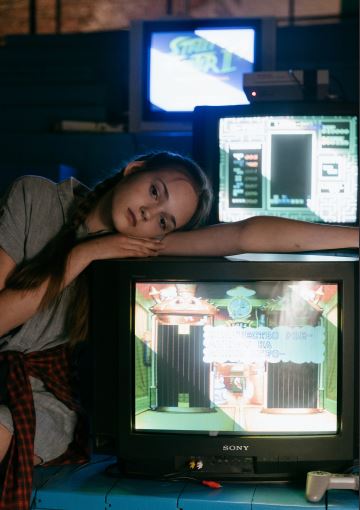Mejorar el pensamiento crítico de unos estudiantes de cuarto semestre a través de series televisivas

Abstract
This research was carried out with some fourth-semester students from a foreign languages program of a Colombian university. The purpose of this research was to implement TV series to promote critical thinking, which would be based on the contrast of cultural aspects between the Colombian and Anglophone culture. An action research approach was used to encourage a preservice teacher implement excerpts from Tv series and subsequently lead debates around the topics covered in the series. By using TV series, the students increased not only their cultural appreciation, but also their listening skills and their ability to express their opinions in English. These findings might be valuable for teachers who intend to apply TV series in the foreign language classroom.
Keywords
critical thinking, cultural appreciation, TV series
References
- Creswell, J. W. (2013). Research design: Qualitative, quantitative, and mixed methods approaches. Sage publications.
- Etikan, I., Musa, S., & Alkassim, R. (2016) Comparison of convenience sampling and purposive sampling. Science Publishing Group 5 (1) p 2 – 4. Doi: 10.11648/j.ajtas.20160501.11 DOI: https://doi.org/10.11648/j.ajtas.20160501.11
- García, A (2016), Emotions in Contemporary TV Series. Palgrave McMillan, Basingstoke pp. 1-10. DOI: https://doi.org/10.1007/978-1-137-56885-4_1
- Hatch, J. A. (2002). Doing qualitative research in education settings. Albany: State
- Korres. O & Elexpuru, I. (2017) Analysis of the values perceived by adolescents through television viewing. Values perceived by adolescents through TV viewing.
- Infancia y Aprendizaje Journal for the Study of Education and Development. DOI: 10.1080/02103702.2017.1370821. DOI: https://doi.org/10.1080/02103702.2017.1370821
- McLuhan, M. (2016) Understanding Media and Culture: An Introduction to Mass Communication. University of Minnesota Libraries Publishing.
- Oana-Roxana, I. (2012) Foreign language learning in the age of globalization. Quaestus multidisciplinary research journal, p 80 – 84.
- Pratomo D. & Kriyantono R. (2016) The Power of Media Effect: Construction Television as Media for Anti-Corruption Education in Indonesia. Department of Communication Science, Faculty of Social and Political Science, Brawijaya University, Indonesia
- Seo, H. (2017) Television as cosmopolitan education: a comparative case study of Face me and Smile and Modern family. University of Illinois.
- Zimmerman, K. (2017). What is culture? Live science, pp 1.
